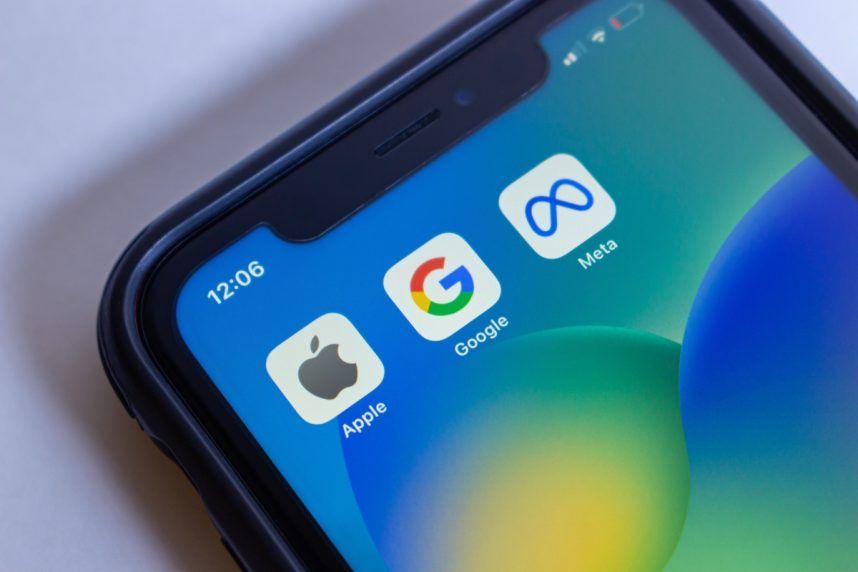Social Casino App Case Against Apple, Google, and Facebook Continues
Posted on: October 1, 2025, 07:49h.
Last updated on: October 1, 2025, 10:21h.
- A lawsuit against Apple, Google, and Facebook will continue
- The litigation claims the tech companies are responsible for illegal social casino apps on their platforms
A federal lawsuit against Apple, Google, and Facebook on allegations that the three tech giants are liable for supporting and profiting from illegal gambling apps will continue.

In a 37-page order handed down on Tuesday by US District Judge Edward Davila in the San Jose courthouse, Apple, Google parent Alphabet, and Facebook’s Meta must continue their defense that they didn’t promote illegal gambling by hosting casino-style apps and profited off their operations through commissions.
The tech companies, which each have app stores where many social casino apps are offered, sought to have the case dismissed on Section 230 immunity claims. Section 230 is a federal law under the Communications Decency Act that protects online platforms from liability for content posted by their users. The statute treats online platforms as distributors of content rather than publishers.
Davila, in California’s Northern District Court, agreed that Section 230 protects Apple, Google, and Facebook from litigation regarding the content of apps they distribute, but took issue with the companies profiting from the content.
Case Continued
The federal lawsuit against Apple, Google, and Facebook began in 2021 when 12 named plaintiffs brought the case on claims that they lost hundreds of thousands of dollars playing illegal gambling apps that were promoted as social gaming. The plaintiffs are seeking the return of their money gambled and for the court to block the tech companies from continuing to offer social casino apps.
The proposed class-action lawsuit alleged that the three companies engaged in racketeering with the illegal gambling enterprises, causing financial and mental injury to the class.
Davila dismissed the RICO conspiracy allegations, stating that the plaintiffs “failed to plead a substantive violation.” The judge explained that the plaintiffs did not explain how social casino apps are rigged.
Plaintiffs did not suffer such an injury when purchasing virtual chips because they received what they paid for — chips that could be exchanged for a chance to win a virtual slot spin. They did not suffer such an injury when they lost on a slot machine, because losing is injury to intangible expectations,” Davila wrote.
Davila, however, wasn’t convinced by the defense’s arguments that Section 230 immunizes the companies from the other plaintiffs’ allegations regarding consumer protection.
“When analyzing Plaintiffs’ loss recovery claims, the Court concluded that the purchase of virtual chips is a gambling transaction. As the Court is also assuming that the underlying gambling in social casino apps is illegal, that purchase is also an illegal transaction. Because Defendants do not dispute that the benefit of the bargain defense is unavailable when it comes to illegal transactions, that defense is not grounds for dismissal,” Davila determined.
Appeal Likely
Apple, Google, and Facebook are expected to appeal Davila’s ruling to the Ninth US Circuit Court of Appeals in San Francisco. The appellate court has jurisdiction over Silicon Valley, and as such, has decided numerous landmark decisions involving tech.
The Ninth Circuit has been favorable to tech in several cases, including the Federal Trade Commission’s ruling against Qualcomm, Oracle’s case regarding intellectual property limitations, and Microsoft’s case regarding website tracking.
No comments yet